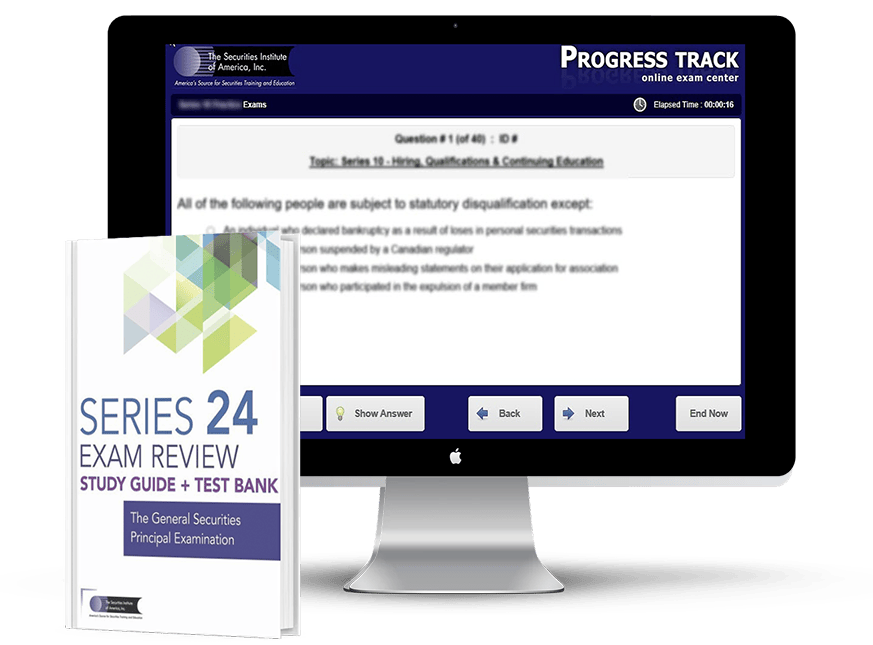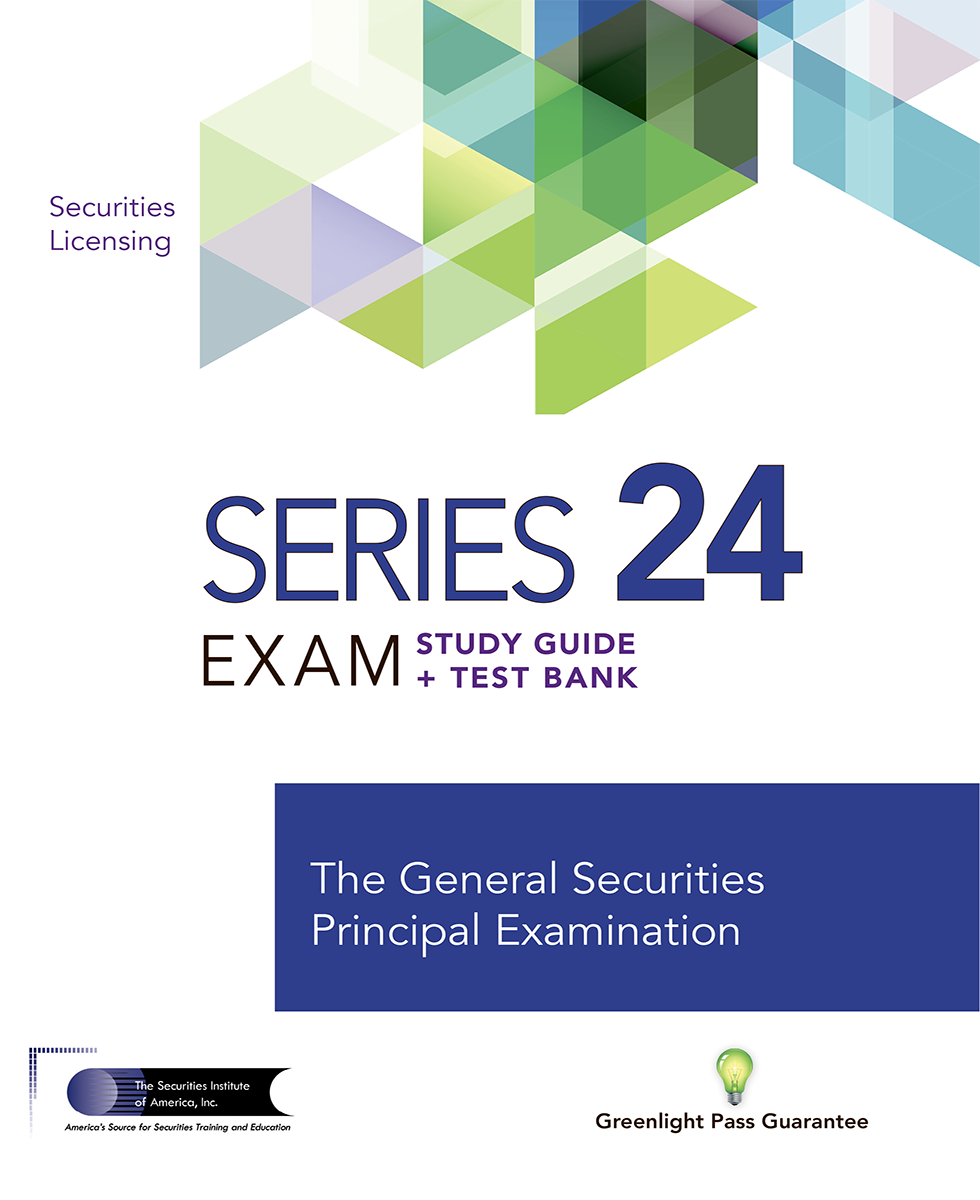Prepare to pass the FINRA Series 24 Licensing Exam Today
Series 24 Exam Prep Study Materials
We understand what it takes to pass the series 24 exam, the first time. That is why our review course covers every detail. The series 24 is a difficult test. Our exam training material makes it easy. Showing you all the tips and tricks you need to be successful. We provide you with the most up to date content and proven test strategies and are here to help you pass. Our study materials are the best the industry has to offer. Our best in class securities exam training course features:

Pass Rate
Over 25 years and 400,000 exams
Assured Success
If you use our practice exams
Chat & Call Support
We are with you every step of the way
Exam Review Course and Study Material highlights:

Our Series 24 experts include NASDAQ market makers, investment bankers and compliance pros

Our material incorporates feedback from thousands of series 24 test takers

Students who buy our study materials maintain the highest pass rates in the industry

High quality online video training follows our textbooks. Providing you with more detail on how the topics are tested and how to answer difficult questions

Our Challenging Series 24 Practice Questions Get you Exam ready. We provide comprehensive explanations

In fact, we are so confident, we offer you a money back pass guarantee.

Our Series 24 exam prep materials guide you through your entire exam prep process. So you are ready for your test date.

 877-218-1776
877-218-1776 
 877-218-1776
877-218-1776 


 Watch Demo Video
Watch Demo Video








